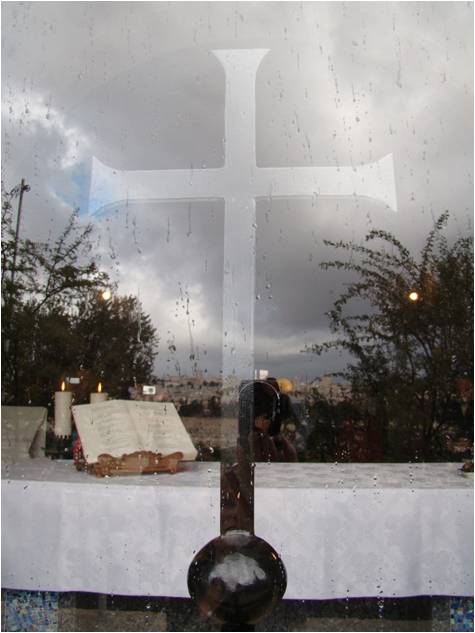
Gene Cunningham - November 28, 2003
Joshua # 11

How do people who had been vested with divine privilege, chosen by God for a life of victory, and set apart to God, end up scattered in the wilderness, destroyed and living worthless, aimless lives (1Co 10:1-11)? The exodus generation is an example to us. Those sanctified in the beginning ended in cursing. They didn't lose eternal life. Sanctification is a setting apart to God; it takes a commitment. When you take advantage of God's Grace, to whom much is given, much is expected. Joshua meets the Commander of the Lord's Armies (Jos 6:1-11). Joshua is told to take the Ark of the Covenant around Jericho.
The Ark is an Old Testament picture of Christ our mediator (1Ti 2:5). The Ark was made of wood, picturing humanity. It was covered with gold representing Deity. Its contents represented sins of Israel: the broken tablets, Aaron's rod that budded, and the bowl of manna; these represented sins of the mind, tongue and overt action respectively. Blood of the sacrifice was routinely sprinkled onto the ark's mercy seat between the cherubim and sin. Jericho falls because Israel was obedient (Jos 6:12-21). They were eager; Joshua got up early (Jos 6:12, Rom 1:15, Jos 3.1, Jos 7:16, Jos 8:10). There was strict obedience to God's word. There was swift action (when the walls fell).
The consequences of choice (Jos 6:22-27; Jos 7:1-26). Rahab a Canaanite is saved. Achan was sanctified; God wanted him to share in the blessings, but he gets destroyed. Both were believers. Rahab shared the message of salvation to her family (Jos 6:25). God made warnings ahead of time (Jos 6:18). At Ai, the Israelites lose because Achan stole what had been sanctified (Jos 7:12-13). Taking something already devoted to God and using it for another purpose, changes it to cursing (Heb 10:10, 1Co 6:19, Heb 10:16-17, Heb 10:25-31). Christ has redeemed us. He opened the door of access. He stands ready to restore us at any time. Those who succeed keep seeking Him. Everything Achan stole (gold, silver, garment) was burned with fire (Heb 6:4, 2Pe 3:11).
Scripture References: Hebrews 10:25-31, Joshua 6:1-11, Joshua 6:22-27, Hebrews 10:16-17, Joshua 8:10, Hebrews 10:10, Joshua 7:16, Joshua 7:12-13, Romans 1:15, Joshua 6:18, Joshua 6:12, Joshua 6:25, Hebrews 6:4, Joshua 6:12-21, Joshua 7:1-26
From Series: "Joshua - 2005"
No summary for this series yet.

